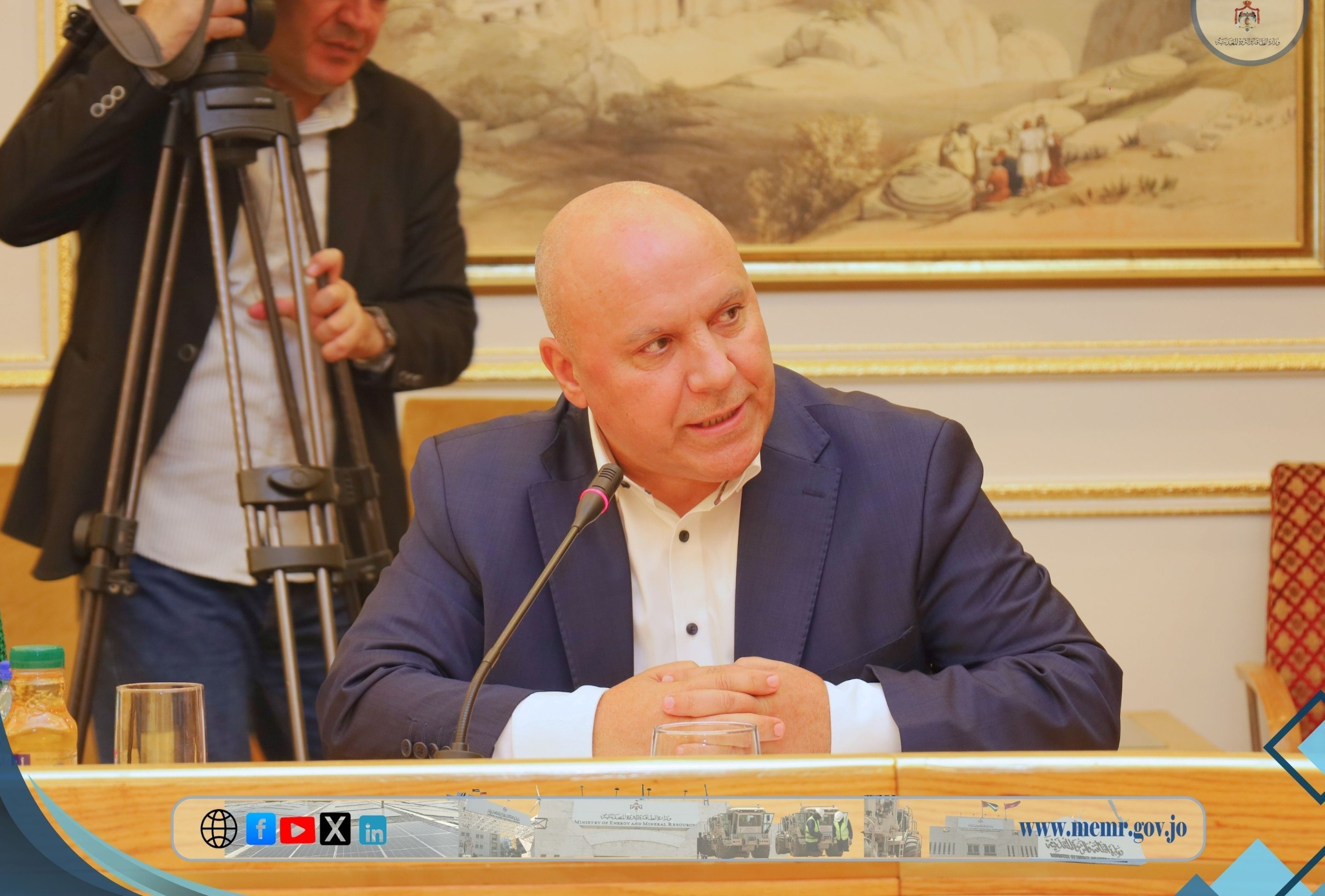
Photo Gallery
October 12, 2025 – The Director of the Renewable Energy and Energy Efficiency Fund, Eng. Rasmi Hamzeh, affirmed that the Fund constitutes a true translation of the national vision to support Jordanian citizens and productive sectors. It serves as a key lever for achieving a comprehensive energy transition in Jordan while contributing to reducing the financial burden of energy bills on the state and key economic sectors.
This came during his meeting with the Senate Energy Committee, headed by Eng. Farouq Al-Hyari, where he presented the Fund’s key programs and initiatives and its role in supporting local development through renewable energy and energy efficiency programs targeted at Jordanian households as well as productive, educational, and health sectors.
Hamzeh noted that the Fund has linked its developmental strategy with major national projects, particularly the Royal Initiatives, emphasizing that marginalized families and the most vulnerable groups have always been and will continue to be a top priority for the Fund since its establishment.
He explained that the Fund started with an initial capital of 25 million Jordanian dinars, which was invested smartly and innovatively to achieve tangible impact by launching real success stories using the Fund’s own resources before providing grants, ensuring that the provided support is effective, impactful, and beneficial to both citizens and the community.
Hamzeh highlighted that the Fund implemented comprehensive household programs to install solar water heaters and photovoltaic systems for homes, providing financial support to eligible groups, including the families of martyrs, beneficiaries of the National Aid Fund, and low-income households. The support covers up to 50% for the lowest-income families and 30% for relatively low-income families.
He pointed out that the Fund established a national network of 250 local associations to deliver services directly to citizens, noting that more than half of the workers in these associations are women, reflecting the Fund’s commitment to social responsibility and women’s empowerment.
He added that the Fund has implemented solar energy projects in schools and hospitals to reduce operating costs, improve service quality, and instill a culture of energy conservation among students and local communities.
In the industrial sector, Hamzeh explained that the Fund applies the “financing through savings” model, which enables institutions to implement energy efficiency projects without any upfront cost, financed through the achieved savings that range between 30% and 40%. The Fund also covers the cost of technical energy audit studies to ensure accurate and effective results.
Hamzeh concluded by stressing that the Fund represents an integrated national system that combines economic, social, and environmental impact, supports the national vision for transitioning toward sustainable energy, and continues to play its role in supporting citizens, productive sectors, low-income families, women’s empowerment, and participation in national Royal Initiatives.